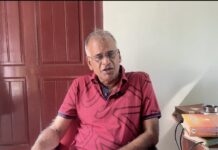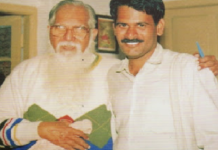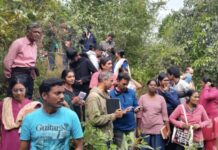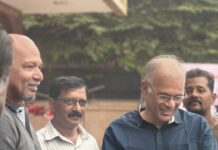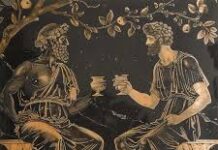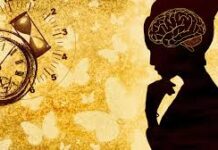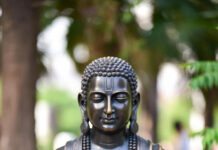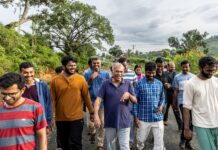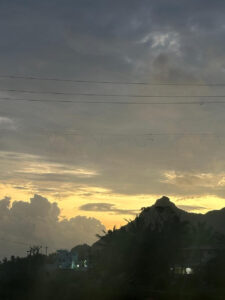
Dear Je,
I have started reading books on world history. I want to finish that before I start reading more on the history of India and Tamil Nadu.
Particularly in history texts, but in all non-fiction generally, the author presents his or her conclusion by synthesising available information. In reading that account, I think it is important to observe whether she presents information from a philosophical standpoint, or simply collates facts to make a logical case, or twists them to align with a certain ideological framework.
Reading the first two would give us a comprehensive, in-depth understanding, whereas the third would limit one’s perspective. But going beyond these, what truly matters is how I read this!
When I say “I,” I mean a collection of experiences shaped by the circumstances of my birth, the society and culture I grew up with, the education I have received and the work I do. It is through this composite “I” that we try to understand all the happenings in the world. Such understanding is the source of all our perception and thought, but because it is derived from our personal experiences, our ego is also mingled with it.
Social media tends to inflate our ego. Once this happens, we begin to clash with all ideas outside of ourselves with this sledgehammer of ego. We end up hurting others and turn uncouth and violent.
One who constantly holds on to that sledgehammer can never learn anything new or attain true joy. Many people are unaware that they are burdened with this sledgehammer, since they have identified themselves completely with it.
I carry one too. My identity is constituted by the many layers of my culture, religion, caste, surroundings, language, education, work, and so on. These combine to form an ideology in me. I view any opposing ideology with a certain detachment and a critical eye. My mind does not make a sincere attempt to learn it lest it should hurt me. Even if I understand those ideas, I doubt that I would willingly integrate them into my life! In this context, I bow before Gandhi and Arishtanemi and pray that I be blessed with the moral courage they possessed.
The sledgehammer prevents me from knowing anything completely. I do arrive at certain thoughts/conclusions from what I read. Yet they are all only the debris left after my sledgehammer has pounded them.
How to get rid of that sledgehammer? How to avoid philosophical errors and misreadings while I read and learn?
With love
Sundarapandian Dandapani
Dear Sundarapandian,
Your question emerges from your lived experience, but I shall deal with it as a philosophical question. Although yours may seem a practical query, it is rooted in complex philosophical issues that Vedanta and Buddhism have extensively analysed.
Knowledge can be examined at four coordinates: the knower, the known, the knowing, and knowledge as such. At the two opposite ends are the one who knows and that which is known; what takes place between the knowing subject and the known object is the activity or process of knowing; the state that transpires as a result is knowledge.
Your question is this: how to achieve knowledge of an object without its being distorted by one’s own subjectivity as the knower? How can one ever access knowledge that has not been coloured and therefore altered by one’s own perception?
Honestly, the Vedantic stance on this question is that the four coordinates are inseparable because they are, in fact, one and the same.
Knowing is the interplay between the knower and the known, which can be represented thus: “Knower → Knowing → Known.” For the process of knowing to occur, the knower and the known are indispensable. One cannot even begin to conceive the act of knowing in abstraction without first visualising a knower as subject.
We usually picture the process as an activity initiated by the knower towards the known. However, it is not a one-way street. The object of knowledge lends itself to be known by the knower, and thus transforms into knowledge. That is to say, the act of knowing involves an active contribution from the object’s end as well.
Therefore, knowledge is not the emergent product now in possession of the knowing subject, but equally a state produced in the known object too. When we know the universe, a perception of the universe settles in us as knowledge, but on the other hand, the universe exists as a form of knowledge in its own right.
After all, what is it that we call the universe? That which is known by us – what becomes available to us as knowledge. That universe which exists as the known within us exists outside us as the potentiality of knowledge, the possibility of being known.
This can be expressed as “the knower (knowledge) – the knowing – the known (knowledge)” which can then be simplified as “knowledge – knowing – knowledge.” Therefore, what occurs constantly is knowledge knowing knowledge.
One way to understand this would be to identify your knowledge as “Knowledge” and the universe’s knowledge as “The Knowledge.” Our own knowledge is a droplet drawn from Universal Knowledge, yet it is part of that Universal knowledge.
To acknowledge that our own knowledge is but a drop in the ocean of Universal Knowledge is the first step in the pursuit of Truth. Its path lies in surmising from the tiny droplet that has reached us the vast expanse of the whole ocean and in synthesising all that one has known towards perceiving the whole.
Buddhism calls individual knowledge “vignana” and the Universal knowledge “alaya vignana.” Equivalent terms exist in the Vedanta too.
One can, at any point, attain only one’s own knowledge; whatever one attains, they are all one’s knowledge alone. One can only contemplate, meditate upon and attain that knowledge which is beyond oneself. This is what Vedanta calls Vibhuti.
Let me turn to the practical aspect from this philosophical explanation. Our knowledge is primarily dependent on our senses; right at that point, it becomes subjective. We can never know the truth or falsity of it on our own.
Back in 1984 when I joined the Telecommunications Department, we were put through a test for colourblindness. Two of my fellow candidates were, in fact, diagnosed as colourblind. It turned out that one of them simply could not perceive two colours at all. Yet he was unaware of this all along and learnt it only then. He started crying from the shock.
He did not know what he did not know; he could not. All he knew was that he lacked something that others possessed. It was only a matter of empty words to him that his perception was defective, because in his perception his phenomenal world was complete; in his subjective view, it was perfect and lacked nothing.
After a day of shock, he began to live normally in his own world. When I met him two years later, he was a bank employee. He claimed that the Telecommunications Department had rejected him for some flimsy reason since he was a Kannadiga. That was the day I truly understood the meaning of Maya.
The same can be applied to the circumstance we live in, our language, region, culture and so on. We learn the truths that suit our nature; we learn the truths that fulfil our needs; to us, other truths do not even exist.
Before X-rays were discovered, they did not exist as far as humans were concerned; once it was discovered, it became a part of our world. Similarly, billions of such rays may exist in the world, yet they are non-existent to us. Our world is only what we have created out of what we know.
What I have been trying to explain so far is that the knowledge which we possess is not something ‘distorted’ by our self; thinking so is fundamentally erroneous. In fact, it is the only knowledge possible to us – all knowledge is such. It is the nature of knowledge to be so; it cannot exist in any other form.
Therefore, attaining ‘pure’ knowledge free of the influence of self is impossible on a practical plane; it is only an imagined conception. When you think about it, you will realise that it cannot even be visualised but can only remain a formless abstraction.
Which brings us to the question: where is the ‘sledgehammer’ you describe coming from? That is not, in fact, the result of knowledge, but of ignorance. There is no such thing in the path of knowledge; it is, in fact, a state of not knowing or refusing to know. Ignorance is not a stage in the path to knowledge; it is its opposite. Knowledge is a continuous journey; ignorance is fixity.
To know is the natural state of humanity; it begins right from the moment we are born and happens every second. It takes place even in our sleep or our unconscious state. This is because we create our world through the process of knowing and that is the world we inhabit. The second when our process of knowing ceases, our existence ceases too.
The joy of knowing is the chief of all joys; it constitutes the content of every joyous experience. What forms the core of even the simplest sensual joys is the joy of knowing. Every mind delights all the time in the process of knowing. Even the pleasure of everyday gossip is derived from the joy of knowing.
Yet, humans dig up little burrows of ignorance in that vast luminous plain of knowledge and choose to hide in the dark. They willingly put on ignorance as their clothing, their ornaments, their armour. Even as knowledge laps at them every second, they use their ignorance to desperately shield themselves from it. We need to reflect on why they do so.
There are many reasons why humans choose ignorance over knowledge. Here I can list out four major kinds of ignorance:
- Attachment: All beings are naturally attached to whatever belongs to them. This sense of attachment keeps extending outwards beginning with one’s land, one’s relatives, one’s belongings and so on. Such beings are so keen to protect their sense of attachment that they refuse to know anything that goes against it; they only wish to know whatever strengthens and deepens their sense of attachment.
- Hording: Humans began to band together as groups in order to hunt, to farm, and to safeguard themselves. Our hording instincts developed and established themselves. So, humans chose to create the sort of ignorance that permits everything that makes a herd living possible and rejects everything outside it.
- Identity: At a certain stage of evolution, man faced a severe existential crisis. He had to define his identity and assert “This is what I am.” Therefore, he created several identity categories based on race, religion, language, nationality and caste. In order to protect and foster these identities, he developed the kind of ignorance that admits only all that is necessary to defend these identities and rejects everything else.
- Ego: At a certain stage of individual growth, every human being developed an ego. In fact, what we call modern civilisation is the period after the primacy of the individual ego became established; the very way in which modern civilisation has progressed has been by promoting the ego further and further. As a consequence of the importance given to ego, the kind of ignorance that deems only its own knowledge as supreme and rejects everything outside it has come to be.
Each of these forms of ignorance belongs to a certain phase of human evolution. The first emerged in the stone age, while the second developed when we began to live together in tribes. The third form of ignorance gained grounds after we organised ourselves into societies, whereas the last one is unique to our modern civilisation.
All the four forms of ignorance co-exist in us now. In fact, we press the fourth form of ignorance, our ego, into service in furthering the first three. What we may originally possess might only be a hording instinct or an affinity to our identity; yet we make these deeply entrenched using our ego.
The concept of ego that emerged in the modern era has a longstanding history. The philosophical construct of the individual became firmly established during the seventeenth century in Europe. The idea of individual freedom in respect of lifestyle, intellectual pursuits and spiritual exploration were foregrounded. Society itself was re-defined as an assemblage of individuals. Every individual was guaranteed a say in determining how that society would function; this is what we call democracy.
This construct of the individual gradually metamorphosed into ego; each individual began to conceive of himself as an ideological centre. Yet the individual does not, in fact, possess any truly original ideas or standpoints of his own. All the ideas and standpoints he has are borrowed from the outside world, shaped by political powers and business interests. Yet he remains blissfully unaware of this since he has actively chosen his state of ignorance and willingly closed every door to knowledge.
Due to the metamorphosis of individuality into ego, complications arise in human relationships; we have quickly become incompatible with anyone else. We all have our own stubborn stances, which we believe to be a mark of our individuality, freedom, and identity. As a result, we have become more and more lonely.
That sense of loneliness creates a host of issues that manifest variously in our society. The first form of its manifestation is our workaholic tendency that leaves us no personal time at our disposal; the second is our addiction to consumption. Both are related: we make elaborate plans for consumption which, in turn, entail relentless labour, both forming a mutually reinforcing cycle.
The next manifestation of loneliness is excessive entertainment. In the history of humankind, there has never been a phase when so many options for entertainment were available to us, making it the ultimate form of consumption. At a certain point, entertainment too cloys and wearies people, seducing them into gambling. The reason so many first world nations are in thrall to gambling is the massive loneliness produced by ego.
In the last thirty years, mass communication has achieved tremendous growth and transmogrified into an entertainment medium of its own, creating the phenomenon of social media. Although it may seem like a platform for the exchange of ideas and mass communication, it is, in fact, a form of entertainment. The fundamental nature of entertainment is the ability to rivet one to that instant, negating both the past and the future. This is what is reflected in social media posts too.
Researchers have extensively studied the psychology of gamblers and found their behaviour rooted in egotism. What drives a person to gamble is his belief in his unique talent or an exclusive fount of ‘luck’ which would guarantee his win. The gambler thinks of himself as the winner at a contest where a million others end up as losers.
It is the same attitude on display in social media too, where everybody foregrounds her ego. Even those who have no individuality to speak of and have contributed nothing worth mentioning in any field project themselves on social media as arbitrators, critics, and judges of the whole world. They delight in flashing their own pictures on the platform.
As the next stage in promoting their own ego, they try to hate, disparage and abuse those who have their own unique personality, have accomplished much in life, and earnt fame for themselves. For this purpose, the petty egotists horde together with likeminded individuals under the umbrella of some political ideology or organisation. They voluntarily label themselves with the markers of religion, caste or race, or they band together by virtue-signaling and exchanging whichever politically correct opinions are in vogue.
It is this ignorance bred by the ego that you are referring to. Once a person locks himself up in the chamber of ignorance, knowledge can only knock at the gates, but can never break in.
The natural subjectivity that exists in the process of acquiring knowledge is germane to it. In fact, it is that which drives us to know, which enables knowing, and gathers its fruits.
We begin by knowing our environment, which happens naturally as a part of our survival mechanism. Then our attempts to acquire knowledge go towards establishing our own selves. We begin to identify ourselves with our knowledge, which is why our thirst for knowledge is unquenchable. Since our knowledge constitutes our personality, we only try to add to it further and further.
Beyond a certain limit, establishing one’s knowledge becomes equivalent to establishing oneself. Therefore, we try to anchor our knowledge so firmly everywhere that it outlasts us and that is why we speak, write or debate. We are thus forced to lug our own knowledge around wherever we go. A majority of “scholars” are those whose existence depends on living up to their reputation; they are burdened by their own weight of scholarship. When they become authorities, their weight naturally increases manifold.
The knowledge we acquire becomes our own and elevates us, but at a certain point, it also imprisons us. In this, it is very much like our body. Our body enables us to know the world around us and we identify ourselves with our bodies. But at a certain stage, our body becomes heavy and obese, making us struggle breathlessly just to lug it around. We constantly nurse our diseased bodies and are enslaved by them.
Is it possible to extricate ourselves from this predicament? The solution is to exit the prisonhouse which our own knowledge has created for us. This involves rejecting the self and moving forward; to reach beyond what one has already learnt only to learn further. Nataraja Guru has said, “Learn to unlearn; unlearn to learn.”
This is what J. Krishnamurthy used to call “Freedom from the known,” but then J. Krishnamurthy had certain limitations. Specifically, he did not create a line of successors or students; he did not conduct classes. He only delivered modern-style lectures, which then became books. All those lectures were addressed to the general public as its audience; the readers and listeners too interpreted his words as it suited them. There are many problems with this approach.
Freedom from what is known is not the realisation that everything one has known is useless. It is not in trying to forget or repudiate what one has known; that is, in fact, impossible. The moment you know something, it becomes a part of your mind, personality and nature; you cannot then forget or repudiate that. If you think you can, it is only a pretence. There is room only for forward movement in the path of knowledge.
Only one way exists to go beyond one’s knowledge: by knowing further. There are two aspects to this: one is to become aware of the extended spheres of one’s existing knowledge and the other, to acquaint oneself with the counterpart to one’s existing knowledge. For instance, anyone who knows the Shaivite philosophy of Meykandar can extend his knowledge by learning about the whole Shaivite tradition. Similarly, one could familiarise oneself with the Christian tradition that is opposed to Shaivism.
What happens when we learn beyond what we know? We move towards a unified knowledge. For instance, let’s say we see a rock. Taking a step back will show us that the rock is part of a mountain. If we move further away, we learn that the mountain itself is part of a mountain range. Moving even further away, we become aware that the mountain range too is only a fold of the Earth’s crust protruding above the surface. At this stage, we have neither forgotten nor repudiated what we knew about the rock; we have simply moved past it by knowing more about its place in the larger scheme.
Let us consider this isolated knowledge about the rock ‘our own knowledge.’ The attempt to move from “our knowledge” to an eternal knowledge is what can be called unified knowing. We integrate several streams of knowledge to move towards a greater knowledge. We link together related instances of knowledge and that includes linking one to its opposite as well; they are connected too, though only by contrast.
This is what Nataraja Guru calls structuralism. The human mind is given to creating structures; each instance of learning turns into a structure in our minds. We keep connecting these new ones with the existing structures to construct a large-scale edifice. We can think of every piece of knowledge as a building block. Using them, we erect the large structure called our own knowledge. That is the world we know.
The extent to which we maximise our knowledge stands in direct proportion to the possibility of unified knowledge. We usually learn things according to our need; sometimes we come to know certain things under various compulsions. These are forms of knowledge that come to us on their own, but these will not help us move towards wholeness. We must try to make our knowledge holistic; we must strive every second to keep moving forward. That is the path to liberation from the known.
Freedom from the known is, in fact, the liberation from isolated bits of knowledge. Each isolated piece of knowledge is constituted as much by ignorance as it is by knowledge, like a ring of light surrounded by the dark. What we do is to speculate upon what lies in the dark based on what we perceive in the disc of lit up space. The accumulation of billions of such discs of light shall illuminate the whole picture and bring us closer to perceiving it.
Narayana Guru maintained that all units of knowledge are integral parts of the single unified knowledge that keeps consolidating itself; therefore all units of knowledge, even motorcycle mechanism, constitute the brahma-gnana. To keep learning is to transcend the limits of isolated knowledge. It is the only way for the subjectivity, which is tied to one’s isolated knowledge, to be eliminated; it is also how the ego, a product of isolated knowledge, ultimately disappears.
This process of transcending the known through knowledge is what the ancient scriptures call gnana-yoga. The Gita states, “All action (karma) ends in knowledge (gnana).” To move towards wholeness via learning of various kinds – arts, literature, philosophy and spirituality – is what Nitya Chaitanya Yati calls the “symphony of values.”
In the journey of integrating everything one has learnt and transcending the learning, one can at some point perceive the wholeness and achieve oneness. Gnana or knowledge must, at some stage, sharpen into the perception of oneness; that is the pinnacle of knowledge.
What lies beyond the sharpest edge is infinite emptiness. One who has attained oneness can feel it within him. One can know what Narayana Guru indicated in the words “The Absolute is that which stands where all that is tangible, countable and thinkable recedes;” the individual knowledge is shed there and the supreme knowledge reigns, he says.
That ultimate state might be beyond our present grasp, but it suffices if we realise that every little thing we learn now and here is but a step forward in the journey towards that destination. If we are willing to expand our horizons instead of confining ourselves to a single philosophy, a single religion, a single vision or a single field, that would suffice. Narayana Guru said, “There are two components of knowledge – a proponent and an opponent – but ignorance has neither.” We need to remind ourselves that knowledge always has its limits as well as its opposing side.
Je

